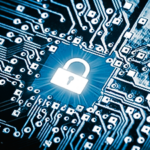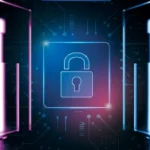 Top 7 Essential Cybersecurity Awareness Tips For Employees To Protect Your Business In 2024
Top 7 Essential Cybersecurity Awareness Tips For Employees To Protect Your Business In 2024
It’s no secret that cyber-attacks are among the biggest threats to all businesses. Hackers often target small and mid-sized organizations that lack robust protection. Without cybersecurity awareness training, they are “low-hanging fruit.” Untrained employees put businesses at high risk of cyber-attacks. Human error is STILL the number one way hackers break in. This shows why ongoing cybersecurity awareness training for employees is crucial. In this blog, we’ll cover why it is critical to train employees and the top 7 cybersecurity tips to protect your network.
Why Cybersecurity Awareness Tips for Employees Is Essential
Before exploring the top 7 cybersecurity awareness tips for employees, you must understand why training is key. The statistics below show that human error is a major factor in most data breaches. Ongoing cybersecurity training reduces the risk of cyber threats by equipping employees with the knowledge to recognize and respond to potential attacks like phishing and social engineering. Here are some quick data breach facts every business should know:
- “82% of data breaches in 2022 were linked to human-related security weaknesses, such as employees falling for phishing attacks or misusing credentials.” – Keepnet
- “Companies that consistently engage in security awareness training experience a remarkable 70% reduction in security incidents.” – Keepnet
- “76% of businesses report falling victim to Smishing (SMS phishing) attacks.” – Keepnet
- “Cybercrime, is up 600% as a result of the COVID-19 pandemic.” – EMBROKER
- “Cybercrime will cost companies worldwide an estimated $10.5 trillion annually by 2025.” – EMBROKER
- “43% of cyber attacks are aimed at small businesses, but only 14% are prepared to defend themselves.” – Accenture Cost of Crime Study
- “80-95% of all cyberattacks begin with phishing.” – Security Magazine
- “Lost business costs [from a data breach] in 2022 totaled $1.42 million on average.” – IBM
- “The number of data breaches in 2023 saw a 72% increase since 2021.” – Forbes
- “Email is the most common [attack] vector for viruses, with around 35% of malware delivered via email in 2023.” – Verizon

How a Phishing Attack Brought Call of Duty Game Maker to Its Knees
In February 2023, hackers hit Activision, the famous publisher behind the Call of Duty games. This breach wasn’t due to fancy hacking techniques. It was due to a simple but effective phishing attack. It shows a scenario that could easily happen to any business, no matter its size or industry.
A Cautionary Phishing Tale for Business Owners
Here’s what happened: A cybercriminal tricked an HR employee at Activision with a seemingly innocent SMS message. This message contained a link that, when clicked, prompted the employee to enter their login credentials on a fake login page. The employee handed over their credentials to the attacker without knowing. The attacker then used them to infiltrate Activision’s systems.
With these stolen credentials, the attacker accessed confidential employee data. This data included emails, phone numbers, salaries, and work locations. They also got access to confidential information about Activision’s new game releases in 2023. The breach not only compromised employee privacy but also had the potential to disrupt Activision’s business operations significantly.
The aftermath was troubling. Employees experienced exposure. The breach of business secrets posed a big risk to the company’s reputation and future plans. This incident shows how one phishing attack can lead to widespread data breaches. This often means business disruptions and loss of revenue.
If you’re a business owner, you might think, “This won’t happen to me.” But the truth is, every business is at risk. Phishing attacks are common and can target anyone in your organization. Here are seven top cybersecurity tips for employees to protect your business from a similar fate:
The Top 7 Cybersecurity Awareness Tips for Employees
The following cybersecurity tips provide practical steps to help employees recognize and respond to cyber threats. From identifying social engineering tactics to maintaining strong passwords and using secure connections, these guidelines will fortify your network against cyber-attacks.
Beware of Social Engineering
Steps to Take: Always verify the identity of anyone requesting sensitive information, especially if the request is unexpected. Use known contact details or direct communication channels to confirm its authenticity.
Protection: Social engineering exploits human trust. Verifying requests helps stop unauthorized access to sensitive data. It protects the organization from breaches.
Consequences: Falling for social engineering scams can lead to data theft, financial loss, and harm the company’s reputation.
Recognize Phishing Attacks
Steps to Take: Be cautious of unsolicited emails or messages asking for personal information. Look for red flags like generic greetings, spelling errors, and suspicious links.
Protection: Recognizing phishing attempts prevents unauthorized access to sensitive data. It protects the network from malicious activities.
Consequences: Falling for phishing attacks can result in data breaches, financial loss, and malware infections.
Update Devices and Software Regularly
Steps to Take: Enable automatic updates for all devices and software. Check for and install updates and patches often.
Protection: Updates often include security patches that fix vulnerabilities. Keeping software up to date reduces the risk of exploitation by cybercriminals.
Consequences: Outdated software can be exploited, leading to security breaches and potential data loss.
Use Strong, Unique Passwords
Steps to Take: Create passwords that are at least 12 characters long, combining letters, numbers, and symbols. Use a password manager to generate and store passwords.
Protection: Strong passwords are harder to crack, reducing the likelihood of unauthorized access to accounts and systems.
Consequences: Weak or reused passwords can be easily compromised, allowing attackers to access sensitive information and systems.
Avoid Public Wi-Fi for Business Activities
Steps to Take: Use a Virtual Private Network (VPN) to access business data over public Wi-Fi. Use secure, private networks whenever possible.
Protection: VPNs encrypt your internet connection, protecting data from being intercepted on unsecured networks.
Consequences: Using public Wi-Fi without protection can lead to data interception. It can also lead to identity theft and unauthorized access to business systems.
Use Multi-Factor Authentication (MFA)
Steps to Take: Enable MFA on all accounts that support it. This typically involves a second form of verification, such as a text message or authentication app.
Protection: MFA adds an extra layer of security, making it harder for hackers to gain access even if they’ve got your password.
Consequences: Without MFA, a compromised password can lead to full access to your accounts and sensitive data, increasing the risk of breaches.
Hover Over Links
Steps to Take: Before clicking on any link, hover over it to see the actual URL. It should match the expected destination and look legitimate.
Protection: This practice helps identify malicious links and prevents phishing attacks and malware infections.
Consequences: Clicking on bad links can lead to malware. It can also cause data theft and network security breaches.
“Your first line of defense in cybersecurity is your people.”
– Jeh Johnson (former US Secretary of Homeland Security)
Essential Cybersecurity Checklist for Employees
Here’s a super simple checklist to keep our company safe. Have employees follow these easy steps, whether they’re in the office or working remotely:

- Use Strong, Unique Passwords: Harder for bad guys to guess.
- Turn On Extra Security (MFA): Makes it tougher for hackers.
- Check Who Sent the Email: Make sure it’s real.
- Don’t Click Strange Links: Stops viruses.
- Hover Over Links to See Where They Go: Keeps you safe.
- Update Your Software: Fixes security issues.
- Avoid Dangerous Websites on Company Devices: Prevents malware.
- Be Careful with Attachments: Avoids getting infected.
- Check with IT Before Connecting Devices: Keeps network safe.
- Use Safe Wi-Fi: Protects your info.
- Don’t Use Public Wi-Fi for Work: Keeps secrets safe.
- Watch for Fake Invoices: Scammers trick finance departments.
- Verify Unusual Requests: Stops impersonation scams.
- Be Skeptical of Urgent Requests: Scammers create fake urgency.
- Don’t Share Personal Info in Emails: Protects against identity theft.
- Report Suspicious Emails: Helps IT stop threats.
- Educate Yourself on Phishing Scams: Recognize common tricks.
- Be Wary of Text Message Scams: Prevents smishing attacks.
- Don’t Click Links in Text Messages: Stops malware and phishing.
- Verify Text Messages from Unknown Numbers: Check for scams.
- Don’t Save Personal Data to Desktop: Protects sensitive info.
- Use Secure Storage for Personal Data: Keeps it secure.
By following our Essentials Cybersecurity Checklist, you can help keep our company safe from cyber scum. Share this with everyone so we all know how to protect ourselves and our business.
Want Help With Cybersecurity Awareness Training For Your Employees?
7tech offers a free cybersecurity awareness training for your employees, as a risk-free way to get to know us. This offer is valid for organizations with over 25 employees. Our one-time expert-led webinar session educates your staff on avoiding common cyber threats that could compromise your business. Ongoing training is required to keep a high level of awareness and resilience.
With 7tech’s managed services, you benefit from cutting-edge, tailored training programs designed to address the specific needs of your organization. Our comprehensive approach raises awareness and instills best practices to ensure long-term security.
Book a free IT Discovery Call to learn more about our cybersecurity awareness training and other Managed Cybersecurity Services.
Neal Juern, CEO of 7tech, is a seasoned cybersecurity advisor known for his strategic insights in Zero-Trust Cybersecurity. It’s his passion to help businesses protect their data. If you’re interested in doing that in-house, then check out his free Masterclass.







